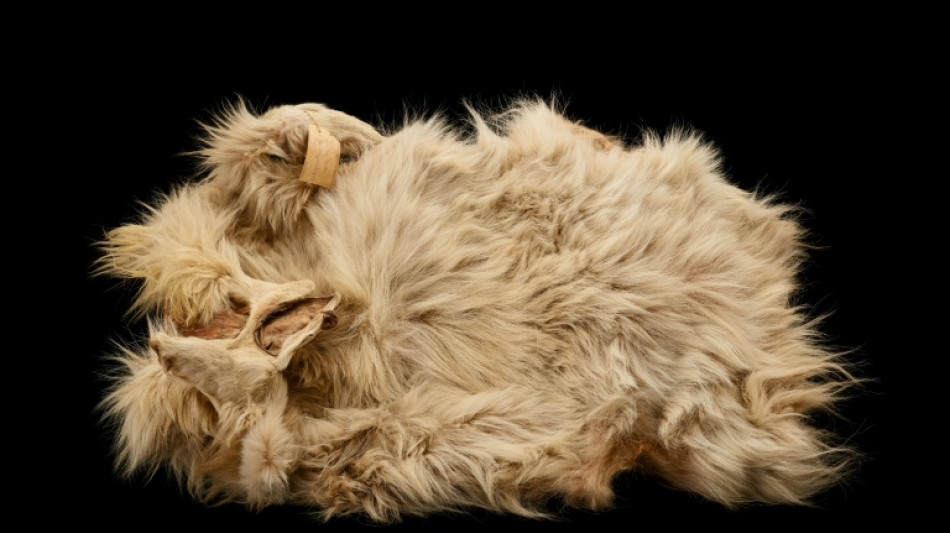
-
 Back to black: Philips posts first annual profit since 2021
Back to black: Philips posts first annual profit since 2021
-
South Korea police raid spy agency over drone flight into North
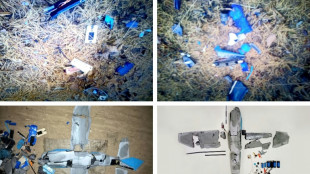
-
 'Good sense' hailed as blockbuster Pakistan-India match to go ahead
'Good sense' hailed as blockbuster Pakistan-India match to go ahead
-
Man arrested in Thailand for smuggling rhino horn inside meat
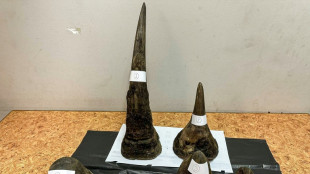
-
 Man City eye Premier League title twist as pressure mounts on Frank and Howe
Man City eye Premier League title twist as pressure mounts on Frank and Howe
-
South Korea police raid spy agency over drone flights into North
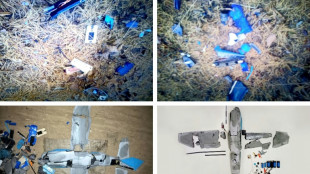
-
 Solar, wind capacity growth slowed last year, analysis shows
Solar, wind capacity growth slowed last year, analysis shows
-
'Family and intimacy under pressure' at Berlin film festival

-
 Basket-brawl as five ejected in Pistons-Hornets clash
Basket-brawl as five ejected in Pistons-Hornets clash
-
January was fifth hottest on record despite cold snap: EU monitor

-
 Asian markets extend gains as Tokyo enjoys another record day
Asian markets extend gains as Tokyo enjoys another record day
-
Warming climate threatens Greenland's ancestral way of life
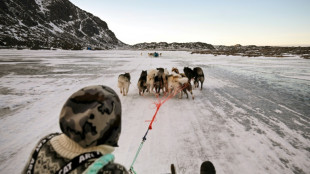
-
 Japan election results confirm super-majority for Takaichi's party
Japan election results confirm super-majority for Takaichi's party
-
Unions rip American Airlines CEO on performance

-
 New York seeks rights for beloved but illegal 'bodega cats'
New York seeks rights for beloved but illegal 'bodega cats'
-
Blades of fury: Japan protests over 'rough' Olympic podium

-
 Zelensky defends Ukrainian athlete's helmet at Games after IOC ban
Zelensky defends Ukrainian athlete's helmet at Games after IOC ban
-
Jury told that Meta, Google 'engineered addiction' at landmark US trial

-
 Despite Trump, Bad Bunny reflects importance of Latinos in US politics
Despite Trump, Bad Bunny reflects importance of Latinos in US politics
-
Gaming Realms PLC Announces FY25 Pre-Close Trading Update

-
 Caledonia Mining Corporation Plc - Issue of Securities Pursuant to Long Term Incentive Plan Awards
Caledonia Mining Corporation Plc - Issue of Securities Pursuant to Long Term Incentive Plan Awards
-
Hemogenyx Pharmaceuticals PLC Announces Issue of Equity

-
 How Fort Myers Dentists Create Long-Term Care Plans for Healthy Smiles
How Fort Myers Dentists Create Long-Term Care Plans for Healthy Smiles
-
Nikon Introduces the ACTION and ACTION ZOOM Binoculars

-
 Australian PM 'devastated' by violence at rally against Israel president's visit
Australian PM 'devastated' by violence at rally against Israel president's visit
-
Vonn says suffered complex leg break in Olympics crash, has 'no regrets'

-
 YouTube star MrBeast buys youth-focused banking app
YouTube star MrBeast buys youth-focused banking app
-
French take surprise led over Americans in Olympic ice dancing

-
 Lindsey Vonn says has 'complex tibia fracture' from Olympics crash
Lindsey Vonn says has 'complex tibia fracture' from Olympics crash
-
US news anchor says 'hour of desperation' in search for missing mother

-
 Malen double lifts Roma level with Juventus
Malen double lifts Roma level with Juventus
-
'Schitt's Creek' star Catherine O'Hara died of blood clot in lung: death certificate

-
 'Best day of my life': Raimund soars to German Olympic ski jump gold
'Best day of my life': Raimund soars to German Olympic ski jump gold
-
US Justice Dept opens unredacted Epstein files to lawmakers

-
 Epstein taints European governments and royalty, US corporate elite
Epstein taints European governments and royalty, US corporate elite
-
Three missing employees of Canadian miner found dead in Mexico

-
 Meta, Google face jury in landmark US addiction trial
Meta, Google face jury in landmark US addiction trial
-
Winter Olympics organisers investigate reports of damaged medals

-
 Venezuela opposition figure freed, then rearrested after calling for elections
Venezuela opposition figure freed, then rearrested after calling for elections
-
Japan's Murase clinches Olympic big air gold as Gasser is toppled

-
 US athletes using Winter Olympics to express Trump criticism
US athletes using Winter Olympics to express Trump criticism
-
Japan's Murase clinches Olympic big air gold

-
 Pakistan to play India at T20 World Cup after boycott called off
Pakistan to play India at T20 World Cup after boycott called off
-
Emergency measures hobble Cuba as fuel supplies dwindle under US pressure

-
 UK king voices 'concern' as police probe ex-prince Andrew over Epstein
UK king voices 'concern' as police probe ex-prince Andrew over Epstein
-
Spanish NGO says govt flouting own Franco memory law

-
 What next for Vonn after painful end to Olympic dream?
What next for Vonn after painful end to Olympic dream?
-
Main trial begins in landmark US addiction case against Meta, YouTube

-
 South Africa open T20 World Cup campaign with Canada thrashing
South Africa open T20 World Cup campaign with Canada thrashing
-
Epstein accomplice Maxwell seeks Trump clemency before testimony


Shaggy dog yarn: Study unravels history and demise of long-haired canine
A little-known dog lineage with fur so thick it was spun into blankets was selectively bred for millennia by Native Americans of the Pacific Northwest until its rapid demise following European colonization, a study in Science showed Thursday.
The new research was based on a genetic analysis of "Mutton," one of the last surviving Coast Salish woolly dogs whose pelt was sent to the nascent Smithsonian Institution in 1859, only to be largely forgotten until the early 2000s.
Interviews contributed by Coast Salish tribal co-authors, meanwhile, revealed the dogs occupied a previously underappreciated high-status in Indigenous societies, which revered the animals as members of the family and adorned their most treasured items with their emblem.
The dogs' fleeces were shorn like sheep, with Coast Salish weavers using the wool to craft blankets and baskets that served ceremonial and spiritual purposes.
"I was always curious about why and how the pre-colonial indigenous dogs in the Americas had gone extinct after the arrival of the Europeans," lead author Audrey Lin, a molecular biologist currently at the American Museum of Natural History, told AFP.
Where and when dogs were first domesticated remains murky, but it's clear that some of the first people who settled in the Americas brought their canine companions with them from 15,000 years ago.
Within the span of a few centuries of Western settlers, however, these breeds were all but wiped out -- and modern American dogs contain exceedingly little genetic material of their lost cousins.
- Genetic analysis -
Lin first came across Mutton when she was working as a postdoctoral researcher at the Smithsonian, and was both surprised and excited to learn that virtually no work had been done on the genetics of woolly dogs, which disappeared around the turn of the 20th century.
Based on the genetic analysis, woolly dogs diverged from other lines up to 5,000 years ago, a date that lines up with archeological findings in the region.
"We found signatures of inbreeding depression, showing that... reproduction was very carefully maintained over a very long period of time," said Lin -- echoing Native accounts that dog husbandry occurred in isolated enclosures or on coastal islands.
Mutton's own genetics showed he was 85 percent pre-colonial despite living decades after the introduction of European breeds, reinforcing the idea Indigenous people maintained the lineage's purity until the dogs were wiped out.
By analyzing 11,000 genes in Mutton's genome, the team identified 28 with links to hair growth and follicle regeneration, finding similar markers in woolly mammoths, and in humans with rare congenital abnormalities.
While Mutton's DNA told the story of his lineage, examining chemical signatures of carbon and nitrogen also offered a snapshot of Mutton the individual over his short 1.5 year life.
This revealed Mutton the pup feasted on molasses and cornmeal, but that he later turned to a hunting diet as he traveled the Pacific Northwest under the care of ethnographer George Gibbs, who was part of an expedition to solve border issues between the United States and British Canada.
- Cultural genocide-
But the story would remain incomplete without context provided by Coast Salish Elders, Knowledge Keepers and Master Weavers, whose oral histories were long ignored if not outright dismissed by Western researchers.
The dominant narrative had been Indigenous communities simply lost interest in taking care of their dogs after the advent of manufactured textiles, but co-author Michael Pavel, a Tradition Bearer of the Skokomish Indian nation, said nothing could be further from the truth.
"What we learned about was that our people encountered a very adverse section of history characterized by colonization, genocide, and assimilation -- any and every aspect of our life that associated us with our traditional culture, ceremonies and history were eradicated."
Woolly dogs were raised solely by high-ranking women, a practice that immediately raised the hackles of colonial Christian missionaries.
Moreover the smallpox brought by Europeans wiped out in some cases 90 percent of Coast Salish village populations, leaving the survivors with few resources to care for their beloved animals.
P.Costa--AMWN

